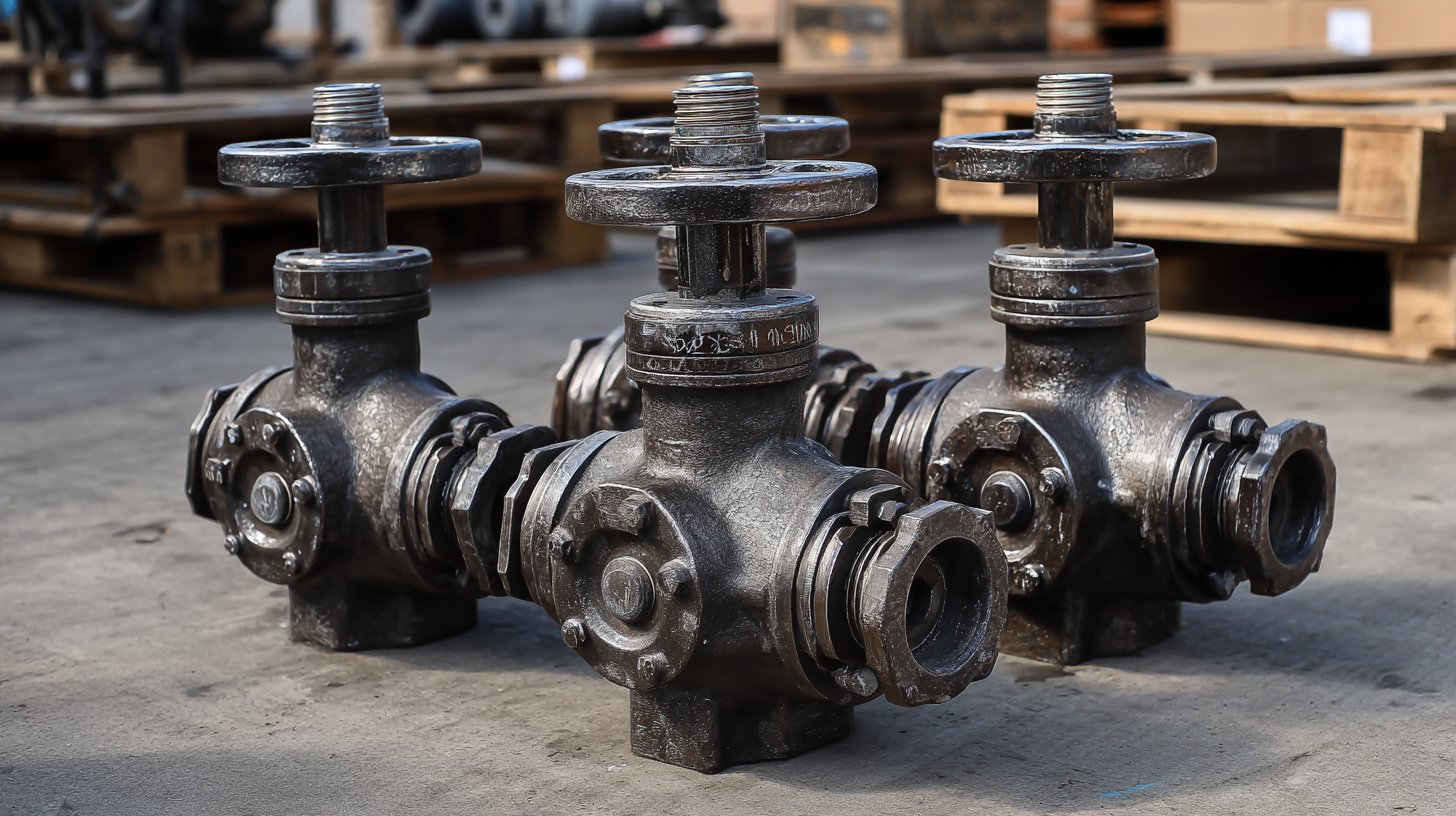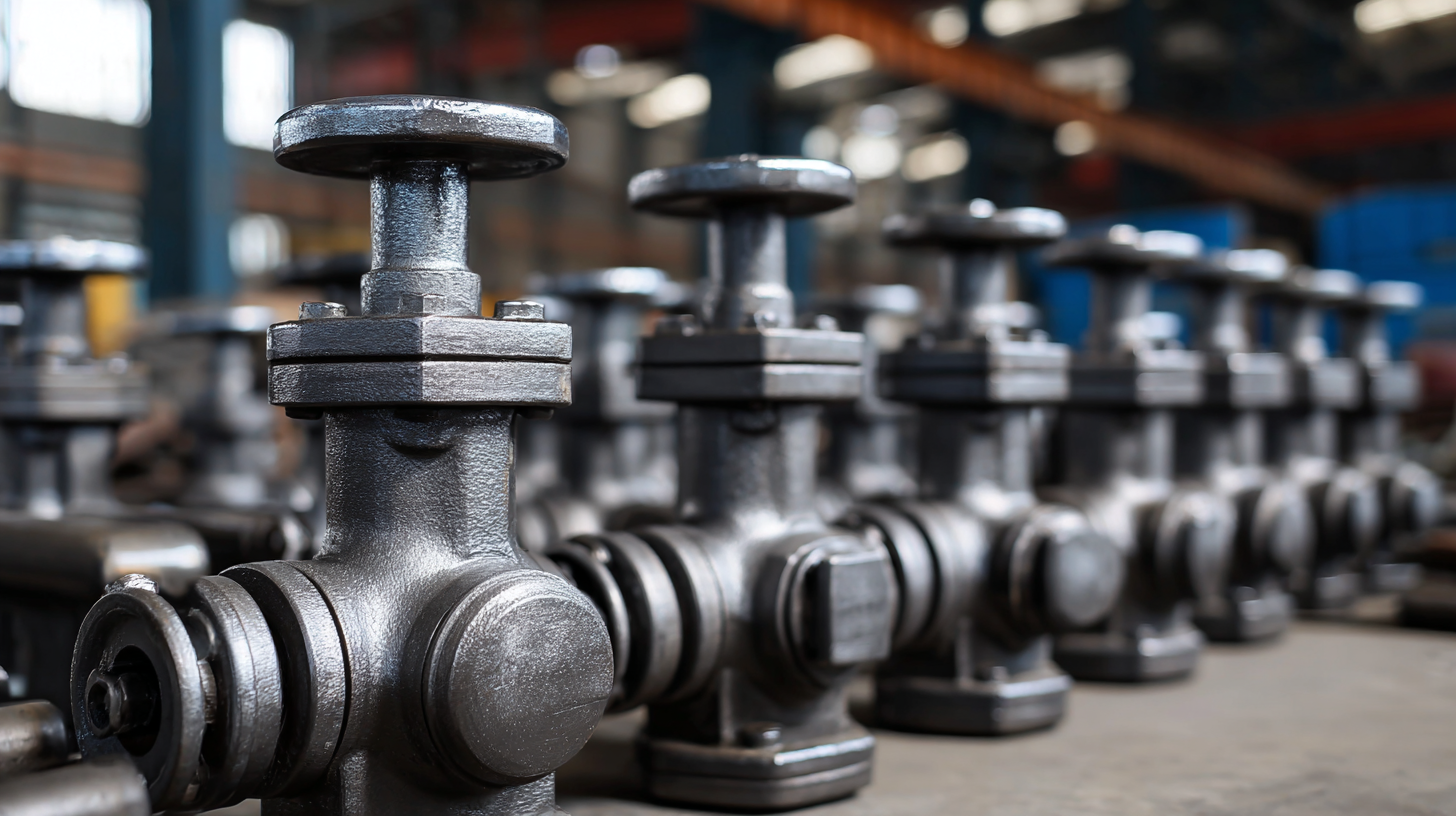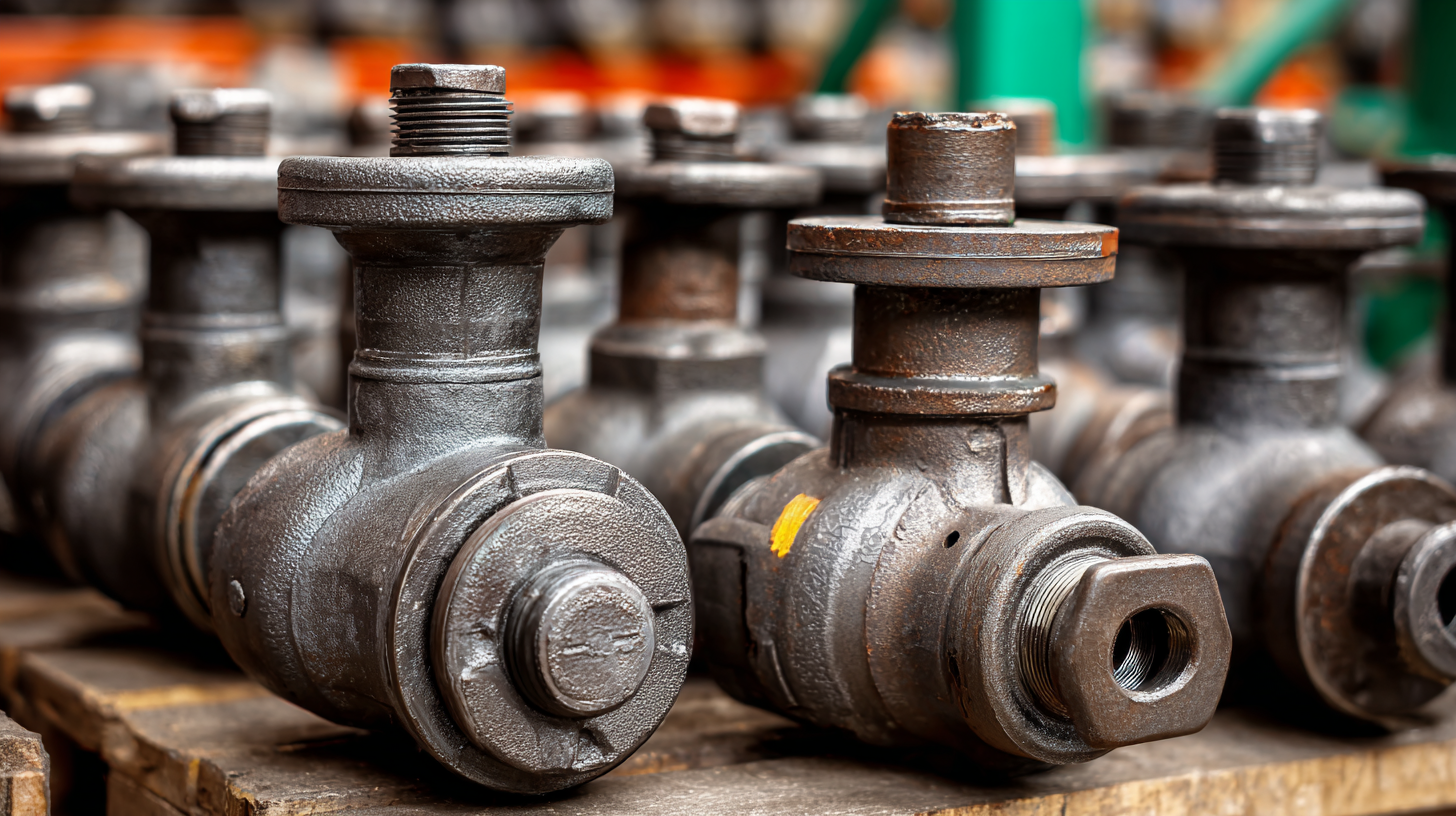+86 19720579616

+86 19720579616

 Zalo
Zalo

In the ever-evolving landscape of industrial manufacturing, the selection of high-quality components is crucial for operational efficiency and safety. Among these components, Forged Steel Globe Valves stand out due to their robust design and superior performance under high-pressure conditions. According to a recent market analysis by Mordor Intelligence, the global valve market is projected to reach USD 100 billion by 2026, with forged steel valves accounting for a significant share due to their durability and reliability. For industries like oil and gas, chemical processing, and power generation, the demand for Forged Steel Globe Valves is driven by their ability to provide tight sealing and precise flow control in demanding environments. As such, understanding the key features and insights in choosing the best Forged Steel Globe Valves is paramount for industry professionals aiming to enhance their operations while ensuring long-term reliability and efficiency.

When selecting forged steel globe valves, several key factors should be considered to ensure optimal performance and reliability. First and foremost, pay attention to the valve’s pressure rating. It’s essential that the valve can handle the pressure requirements of your specific application. Look for valves rated for high pressure if your system operates under demanding conditions. Additionally, consider the temperature range the valve can withstand; this is crucial for maintaining the integrity of your system in different operating environments.
Another important aspect is the material composition of the valve. High-quality forged steel not only enhances durability but also improves resistance to wear and corrosion. Ensure that the valve you choose is suitable for the fluids being handled, as this will significantly affect its lifespan and performance. It’s advisable to consult with suppliers about the material specifications and any necessary certifications.
**Tip:** Always check for the latest industry standards and certifications for forged steel valves to ensure they meet safety and performance benchmarks.
**Tip:** Consider the valve's maintenance and accessibility features. Choosing a design that allows for easier maintenance can save time and reduce costs in the long run.

When selecting forged steel globe valves, durability is paramount, making it essential to focus on critical features that enhance their longevity. One of the key aspects is the material quality used in their construction. Forged steel, known for its superior strength and resistance to high temperatures and pressure, ensures that the valves can withstand demanding conditions commonly found in industrial applications. The use of high-grade alloys can further enhance corrosion resistance, a crucial factor when dealing with harsh chemicals or environments.
Another important feature is the design of the valve itself, including the seat and disc configuration. A well-designed seat can effectively minimize wear and tear, providing a tight seal that reduces leakage over time. Additionally, the valve’s thickness and overall construction determine its ability to endure physical stresses. Look for manufacturers that offer valves with high material integrity and precise machining processes, as these factors significantly contribute to the reliability and durability of forged steel globe valves. Investing time in understanding these critical features will yield long-lasting performance and reduce maintenance costs in the long run.
When selecting forged steel globe valves, understanding industry standards and certifications is paramount. Various organizations, including the American National Standards Institute (ANSI) and the American Society of Mechanical Engineers (ASME), provide guidelines that help ensure the safety and quality of valve products.
According to a report by MarketsandMarkets, the global valve market is projected to reach $100 billion by 2025, underscoring the critical need for compliance with these standards in ensuring reliable performance.
Moreover, certifications such as ISO 9001 for quality management systems and API 602 for gate, globe, and check valves ensure that manufacturers adhere to the highest levels of quality and reliability. Valves that meet these standards have undergone rigorous testing, which can significantly reduce the risk of failure in demanding applications. As per a study by Research and Markets, a staggering 75% of valve failures can be traced back to inadequate quality control and non-compliance with industry regulations. Therefore, factors like certification and adherence to accepted industry standards should be at the forefront of any decision-making process when selecting forged steel globe valves.

When selecting forged steel globe valves, industry professionals often face the challenge of comparing various brands to determine which one best meets their operational needs. Key features such as material quality, pressure ratings, and valve design can significantly impact performance. It is essential to consider whether the valve is manufactured from high-quality carbon steel or stainless steel, as this affects durability and resistance to corrosion. Additionally, understanding the pressure and temperature ratings will help ensure that the valve can withstand the operational environment it will be subjected to.
Another important aspect to consider is the manufacturer's reputation and warranty offerings. Brands with a strong track record of reliability and customer service often provide better long-term value. It’s advisable to read reviews and gather feedback from other users to gauge the performance of the valves in real-world applications. Moreover, examining the availability of spare parts and maintenance support can offer further insights into the overall cost-efficiency of the valve over its lifespan. By carefully weighing these factors, you can make a more informed decision when selecting the right forged steel globe valve for your specific requirements.
When selecting a globe valve for your project, avoiding common mistakes can save both time and resources. One of the frequent errors is neglecting to consider the valve's pressure rating. Installing a valve that cannot handle the operating pressure of your system can lead to failures and costly repairs. It's crucial to match the valve's specifications with your project's requirements, ensuring it operates safely and efficiently under the expected conditions.
Another mistake to watch out for is overlooking the materials used in the valve's construction. Forged steel globe valves come in various materials tailored to specific environments, including high temperatures and corrosive substances. Failing to select the appropriate material can result in premature wear or even valve failure. Always assess the conditions where the valve will be installed, including temperature, pressure, and the characteristics of the fluid being controlled, to choose a valve that will stand the test of time.
| Feature | Importance | Common Mistakes | Industry Insights |
|---|---|---|---|
| Material Quality | Crucial for durability and performance | Not assessing corrosion resistance | High-grade steel enhances longevity |
| Pressure Rating | Ensures valve can handle system pressure | Underestimating required pressure rating | Verify specifications against application |
| Size and End Connection | Correct sizing is vital for flow efficiency | Choosing wrong size or type of connection | Standard sizes simplify replacement |
| Flow Coefficient (Cv) | Determines flow capacity through the valve | Ignoring Cv values during selection | Higher Cv usually means better performance |
| Temperature Rating | Must withstand system temperature | Selecting a valve with inadequate temperature tolerance | Always check compatibility with fluids |

